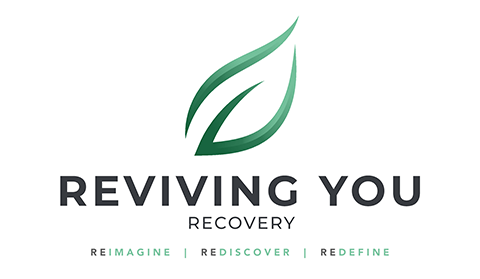How Acceptance Helps Clients Heal From Alcohol Addiction

The path to healing from alcohol addiction is unique for each client. However, acceptance is often part of the journey. Acceptance helps clients move forward with their lives by addressing the issues that they have had regarding their addiction to alcohol. Therefore, in treatment at Reviving You Recovery, clients are encouraged and taught how to reflect and accept their issues, taking steps forward toward a new life. One method of helping clients accept is integrating acceptance and commitment therapy (ACT) as a part of their comprehensive and individualized treatment plan.
Alcohol Addiction: Unhealthy Coping
Many individuals with alcohol addiction struggle to feel, acknowledge, and accept their emotions. These individuals use alcohol as a way to cope with the emotions that they struggle to accept and feel. Research shows that individuals who use alcohol to cope tend to use alcohol long-term, causing alcohol addiction.
Unhealthy coping using alcohol is common and often an underlying issue in alcohol addiction. However, every individual has a unique set of emotions that they use alcohol to cope with. Some individuals will lean towards alcohol when they experience feelings of stress or anxiety, while others may use alcohol to cover up anger or frustration. However, when a person incorporates alcohol as an unhealthy coping mechanism, it often becomes a pattern. This pattern creates challenges as it is habitual, making it easy to return to.
Value of Acceptance in Alcohol Addiction Treatment
Due to alcohol addiction commonly being partially due to unhealthy emotional coping, behavioral therapies are often a part of treatment. One aspect of behavioral therapies is learning to both feel emotions and cope with them more healthily. Both of these require that a client learn to first accept their emotions and themselves.
Acceptance is the process of recognizing the truth of a situation or process. When a person accepts the truth, they can fully look at a situation without judgment and with their eyes fully open. Acceptance can refer to many aspects of a person’s life, including their emotions, sensations, and the situation they are in.
Feeling Emotions
Humans experience a range of emotions in their lives. These are both negative and positive. For many individuals with alcohol addiction, feeling emotions is challenging. The patterns of using alcohol to cope with challenging emotions, commonly negative emotions, are often deep and mean that a person will struggle to even acknowledge the feeling before looking for a way to change it.
However, through acceptance, individuals can learn to feel their emotions again. The first step is for a person to accept that they have both negative and positive emotions. This is a reality of being human. Then, through practice and the guidance of a counselor, clients learn to feel and accept their own emotions in the moment. This helps them to be more able to deal with the emotions that they feel, both in treatment and after.
Get Your Questions Answered Now
Healthy Coping Skills
Having healthy emotional coping skills is very important in the recovery from alcohol addiction. Many individuals lack healthy coping skills and, therefore, begin to learn these skills in treatment for addiction. One of the foundational skills needed to cope healthily is acceptance.
When a person can acknowledge and accept the reality in their lives and themselves, they are more able to use healthy coping skills. This is because individuals must first accept their feelings and circumstances before taking steps to cope with them. Without accepting, they are more likely to use older, more practiced, and less healthy coping methods. Therefore, when people accept how they feel and where they are at, they can take steps toward a new way to cope with the challenges that they face in their lives.

Acceptance and Commitment Therapy
At Reviving You Recovery, clients are offered the opportunity to learn acceptance in ACT. ACT is a form of psychotherapy that helps clients to be more aware and in tune with themselves. Interventions assist clients in their way of knowing themselves better by using different methods that help them build self-awareness and mindfulness.
In ACT, clients learn to accept themselves by viewing themselves without judgment. While this seems simple, in practice, it is very challenging. However, over time, clients learn to take stock of their feelings and experiences without first judging themselves or their own experiences.
The goal of ACT is to help clients successfully make behavioral changes. It begins with mindfulness, the act of clients getting to know themselves better. Then, clients are encouraged to look at the changes that they truly want to make. This means setting some goals. However, it also includes considering how their current actions are impacting their lives. Overall, ACT sets up clients to make changes in their lives for the better, both in treatment and after.
It is common for individuals with alcohol addiction to struggle with feeling and accepting their emotions, often using alcohol as a coping mechanism. Fortunately, learning acceptance in acceptance and commitment therapy (ACT) at Reviving You Recovery can help. We strive to help our clients be honest with themselves, as we know that only when clients are honest with themselves can they truly make changes in their lives. In treatment at Reviving You Recovery, clients are offered assistance to walk the path of healing from alcohol addiction and getting to know themselves so that they can be successful in both treatment and long-term recovery. Call us today at (951) 723-7598 to learn more.
We Accept Most Insurances
We are in network with:






We know insurance coverage can be a source of uncertainty for people. We make sure you have all the information necessary. The great news is health insurance can potentially cover the total treatment costs. If you don't have insurance, we offer cash payment options for our treatment programs and are committed to working with clients regardless of financial situations.
